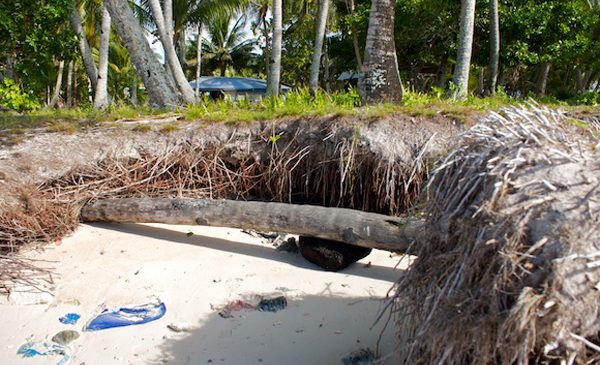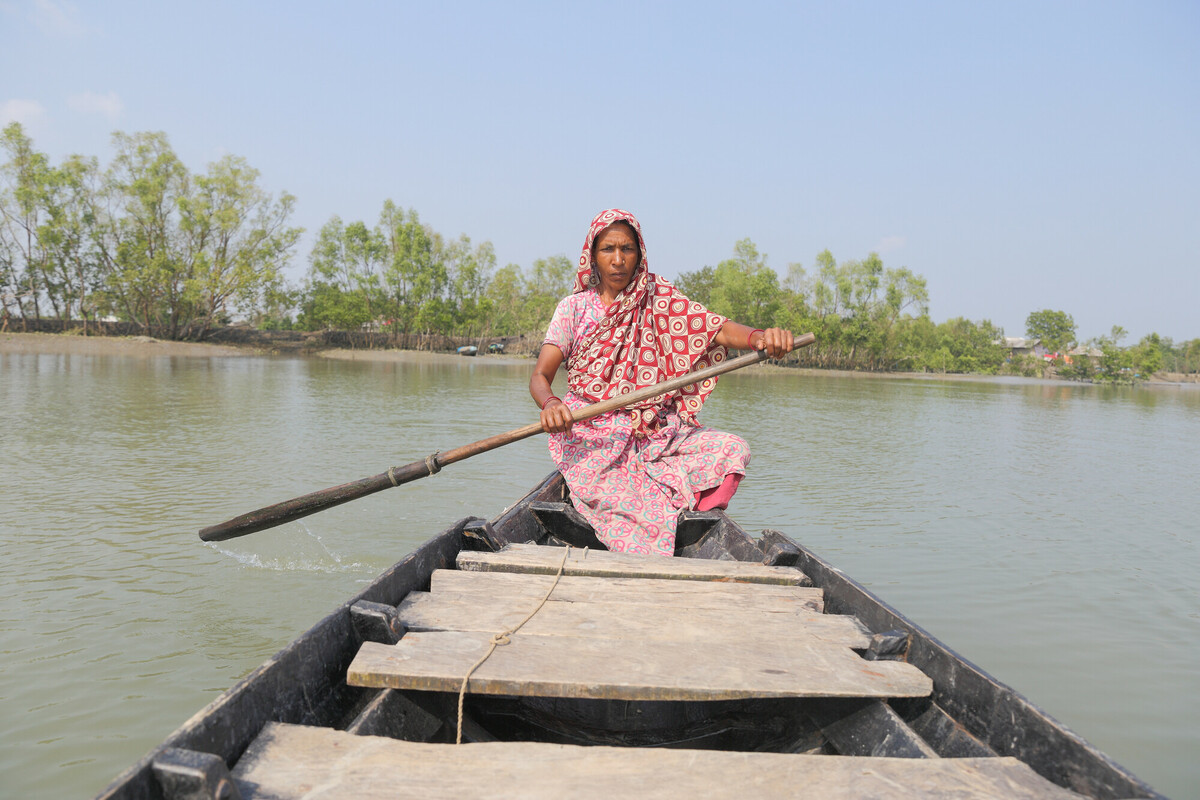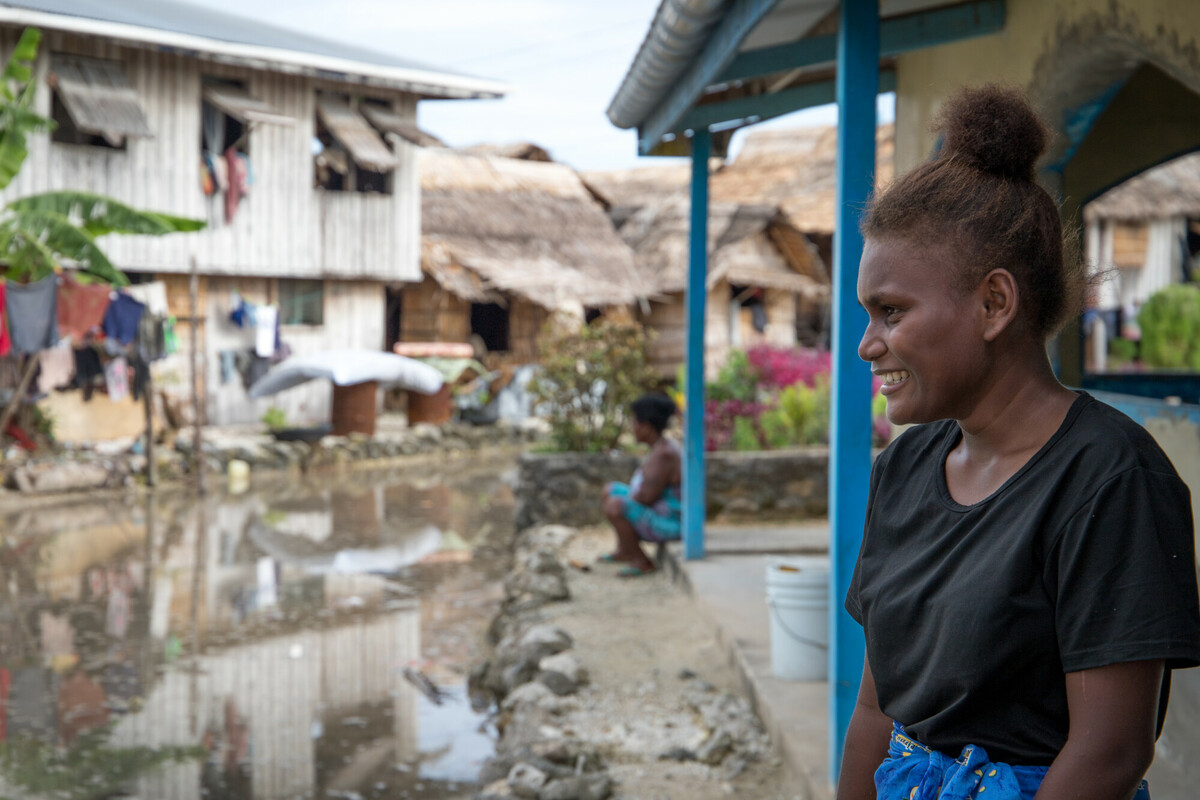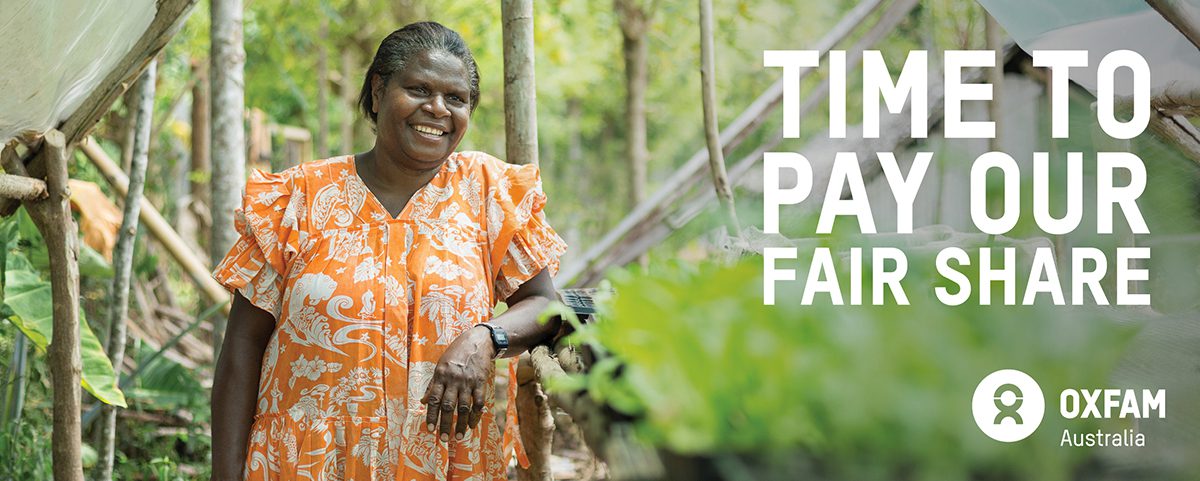The small and utterly remote island of Nukufetau is severely affected by coastal erosion and water scarcity. Many of the islanders can’t afford expensive rainwater tanks and are forced to drink polluted ground water.
On Nukufetau, one of Tuvalu’s nine islands, the 567 inhabitants live off the soil and the sea. Their daily diet consists of fish from the lagoon, traditional root vegetables like taro and pulaka, coconuts and breadfruits. The little money that the islanders need, they get from relatives working on the main island of Funafuti or abroad as seafarers.
Disappearing coastline
The most shocking sight that meets you when entering Nukufetau is the massively eroded coast at the end of the main islet. Several coconut trees had fallen down recently and the sea had eaten its way into and around the trees that were still standing.
“Costal protection is the most serious need of Nukufetau. If you live here long enough you can see that part of the island is disappearing. If we don’t act and build up our coastal protection, we will have a very small Nukufetau in 50 years time.” – Masi Apisai, responsible for the Tuvaluan National Adaptation Programme of Action (NAPA) on Nukufetau.
Masi mainly works on three issues within the seven profiles of the NAPA: Food security, costal erosion and freshwater supplies.
Seawalls and mangroves
The two main strategies for handling the erosion are to plant trees around the whole island and to build seawalls.
“We are planting all kinds of trees, like mangroves, pandanus, the fetau and futu (local names). Then we are using the soft technology seawalls – like sand bags instead of cement – things that just absorbe the strength of the waves.” – Masi Apisai
Urgent need for freshwater
The freshwater supply on Nukufetau is a major issue and concern. In Nukufetau, a lot of people don’t have rainwater tanks at all and rely on the ground water.
It costs around 1000 AUD (1 AUD = 1 USD) to get a rainwater tank and many people can’t afford that. The wells are often close to the septic tanks and many of them are leaking.” – Nai Feoto, Sanitation Aid officer at the island clinic
Causing health problems
The head of the clinic, Aoele Vauealiaki, explains us that the most common diseases on Nukufetau are related to lack of water or bad quality of water.
“The most serious health problems here on Nukufetau are skin diseases as fungal infections, ringworms and scabies and diarrheas and vomiting.” – Aoele Vauealiaki
Aoele, who has been stationed on Niulakita before she came to Nukufetau, says that there were fewer cases of these diseases there. Now the clinic is trying to make people more aware of the importance of secure and clean water, how to wash their clothes properly and also of general personal hygiene.
Lan Marie is a member of the international youth climate movement currently working in Tuvalu on the climate change awareness project Klima-Tuvalu
First published on Klima Tuvalu




